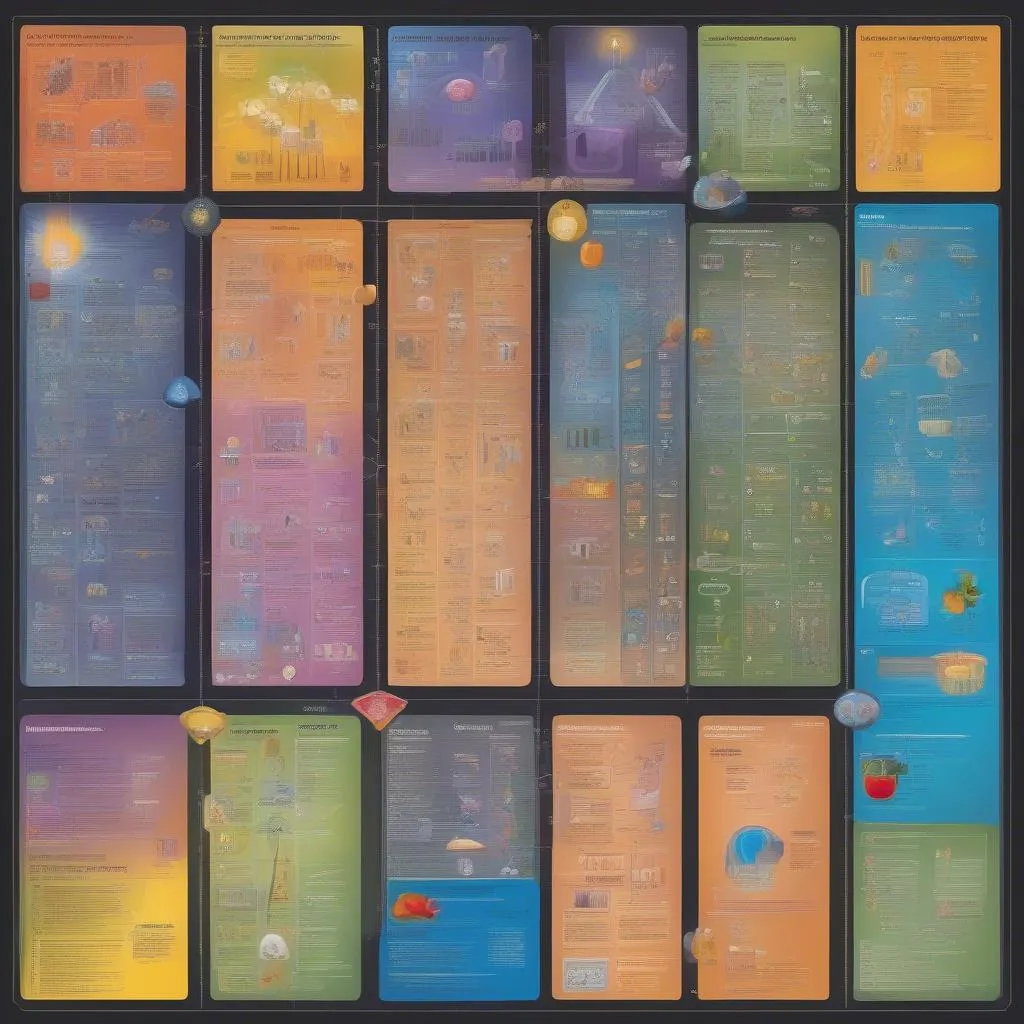“Oh, the periodic table, that scary monster! How can anyone memorize it?” – Have you ever thought that? Surely, everyone has felt overwhelmed when faced with the “mountain” of chemistry knowledge, especially the periodic table with tons of elements, symbols, and data. But don’t worry, this article will help you “tame” this monster, turning it into a powerful tool for your journey to conquer chemistry knowledge!
“Cramming” the Periodic Table: “Necessity is the Mother of Invention”
Don’t think that memorizing the periodic table is just passive “cramming.” Instead, turn it into an exciting adventure, using scientific and creative methods to remember information effectively.
1. “Divide and Conquer”: Break Down the Periodic Table into Smaller Groups
Divide the periodic table into smaller groups based on common characteristics, for example:
- Alkali Metals: Li, Na, K, Rb, Cs, Fr
- Alkaline Earth Metals: Be, Mg, Ca, Sr, Ba, Ra
- Halogens: F, Cl, Br, I, At
This way, you will easily memorize the elements in each group, and from there, gradually connect them to form a complete picture.
2. “Give the Periodic Table a Makeover”: Charts, Mind Maps
Instead of “cramming” dry data, “decorate” the periodic table with vivid images. Charts, mind maps, illustrations… will help you remember information visually, easily, and for a long time.
Example: You can draw a mind map of the chemical properties of element groups, or use fun, cute images to illustrate chemical elements.
3. “Secrets Behind” the Periodic Table: Explore History and Applications
Explore the history of the periodic table’s development, learn about the great scientists who contributed to its creation. Also, learn about the applications of chemical elements in life, thereby creating a connection between knowledge and reality.
Example: You can learn about the role of elements like iron, copper, gold, and silver in everyday life.
4. “Practice Regularly” to “Deepen” Knowledge: Exercises, Games
Regular practice is extremely important. Set aside time each day to review learned knowledge, do exercises, and play games about the periodic table.
Example: You can create your own quizzes, play “Who is smarter?” games with friends or family.
5. “Transform” the Periodic Table: Storytelling, Poetry
You can create your own stories or poems about the periodic table. This not only helps you remember information effectively but also increases your learning interest.
Example: You can tell a story about “The Journey to Discover the Periodic Table,” or write poems about chemical elements.
“Listen” to the Experiences of Those Who Came Before
“Learning from a teacher is good, learning from friends is better,” listen to the sharing and learning experiences of those who came before. Search for articles, videos, or forums about how to memorize the periodic table.
Example: Chemistry teacher Nguyen Van A shares his experience: “The secret to effectively memorizing the periodic table is to combine different learning methods, such as group study, doing exercises, using mind maps…”.
“Learn” from Inspirational Stories
The story of Marie Curie, the first woman scientist to win a Nobel Prize, is a prime example of effort, perseverance, and passion for science. She devoted her life to researching radioactivity, making significant contributions to the development of chemistry.
Her story will inspire you, helping you gain more motivation to overcome challenges in learning.
Reminder: “Everything Has Two Sides”
Memorizing the periodic table is an important skill in studying chemistry, however, you should not focus too much on “cramming” and neglect understanding the nature and applications of knowledge. Take time to learn more about each chemical element, exploring their structure, properties, and applications in life.
Conclusion:
Memorizing the periodic table is not an overly difficult task if you know how to approach it scientifically and creatively. Apply appropriate learning methods, create learning motivation for yourself, and don’t forget to “listen” to the experiences of those who came before. Good luck on your journey to conquer chemistry knowledge!
 Detailed periodic table of chemical elements
Detailed periodic table of chemical elements
 Students studying chemistry and using a periodic table
Students studying chemistry and using a periodic table
 Visual representation of chemistry concepts and knowledge
Visual representation of chemistry concepts and knowledge
Do you have any other questions about the periodic table? Leave a comment below!
